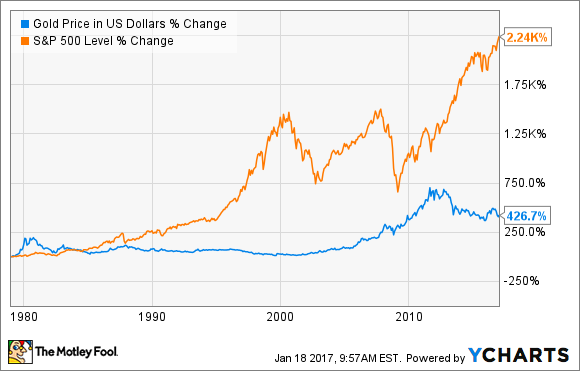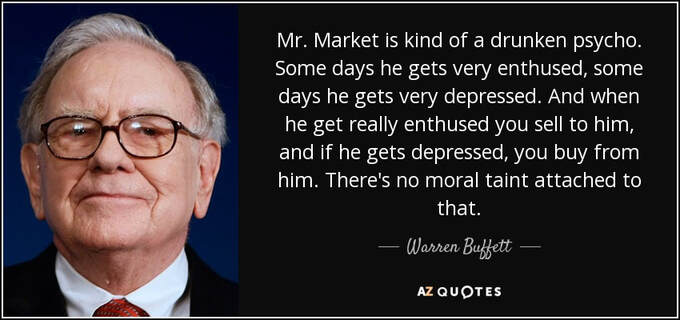|
You might have been noticing rising prices lately... on well, just about everything! Food, energy, commodities like building materials, wages, etc. Your dollar seems to be purchasing less and less. This inflationary effect essentially means that the dollar and other world currencies are falling in value. The rich find effective ways at "hedging" against inflation in order to preserve and grow their wealth. Below are some popular assets for hedging against inflation:
2.) Crypto Currency. With the rise in skepticism about the value of the dollar and other world currencies, crypto currency or currency that is created privately outside of the purview of central banks has become used widely as a hedge against inflation. Governments don't control the cryptocurrency markets so they cannot devalue it through deficit spending. In the short term, cryptocurrency like Bitcoin has far outpaced inflation. In October 2013, a Bitcoin was valued at $120 per coin. Fast forward to April 2021, and that same coin traded for $63,000, and then traded for $32,000 as late as June 2021, a fall in value of almost 50%. Here are my thoughts on cryptocurrency: a.) Inflation hedging should first be an act of capital preservation, not gambling in order to beat inflation. Even though prices on commodities have skyrocketed in recent months as things get slightly back to normal, there really isn't a correlation between the consumer basket of goods and the price of cryptocurrency. A lot of the velocity of money that has flowed into cryptocurrency has largely been speculative and not from a demonstrable devaluation of the world's fiat currencies (currencies controlled by central banks). b.) Cryptocurrency is still not used widely as an actual currency. Even the largest advocates for the currency aren't using crypto in their routine exchange of goods and services. Meaning that even those who buy the currency don't use it as.... well.. currency. Currency was invented to be a temporary store of value in which to exchange goods and services, not to stock pile and speculate on its rise in value. Currency, having the root word "current" is designed to be constantly moving. c.) As an investor, I am not a fan of any currency, much less cryptocurrency. My mantra is "cash is trash", that's why we as real estate developers try to get rid of cash as quickly as possible and convert it to hard assets like real estate which create rising cash flows over time. 3.) Fixed Income. I will classify fixed income as anything that returns predictable incremental cash flows over time that are not FDIC insured accounts like checking, savings accounts, CDs and money market accounts. These can be government bonds, corporate bonds, mortgage backed securities, preferred stock, or private mortgages. Typically fixed income investments are a decent low risk tool in hedging against inflation. But in the wake of the pandemic, the Federal Reserve Bank cut short term interest rates as well began buying tons of treasury bonds to help keep interest rates very low. This has resulted in very low yields for intermediate term bond funds and government bonds. Sub 2% yields in many of these classes of investments have become the norm, which barely keeps up with inflation. Although these asset classes can be an effective capital preservation tool, they are not all too effective in growing your net worth. Furthermore, there is a significant amount of interest rate risk that goes with these types of investments. What is interest rate risk? Let's paint a scenario. Say you purchase a $100,000 5 year bond with an annual coupon of $2000 per year, or a 2% interest rate. If interest rates for similar bonds go up to 5%, what do you think that does to the value of your investment holding? Would you buy a 2% interest rate bond if you could buy the same type of bond that yields you 5%? The market takes account for this increase in interest rates by devaluing your 2% bond significantly. So if you needed to redeem your bond in a rising interest rate environment, you would actually lose a significant amount of your investment. Even if you held onto this bond until it's maturity, you wouldn't lose any your principal balance but you would have incurred an opportunity cost. You COULD have been earning 5% instead of 2%. This interest rate risk becomes even more pronounced if you buy longer term bonds or other fixed income instruments in this environment. An alternative fixed income instrument is investing in debt like private mortgages which are backed by a hard asset: real estate. As a real estate developer, we partner with private lenders who wish to get higher returns backed by real estate and managed by an experienced operator that they know. These investors can earn any where from 7% to 12% per year. The operator then use these funds to purchase and develop cash flowing real estate assets. The term on these loans can be anywhere from 1 year to 10 years depending upon the objectives of the private lender. It's very customizable and the lender is in control of negotiating the terms and what type of collateral they are comfortable with! Incidentally, if you are interested in real estate lending, we are always looking to build relationships with private lenders to help us grow our portfolio! 4.) Stocks. Stocks, also known as equities, offer a great long term inflation hedge and opportunity to build wealth. The S&P 500 index, a basket of the 500 largest publicly traded US companies have averaged a roughly 8% annual return since it's inception in 1957. Investing in stocks is very easy. You could literally convert your cash into shares in an S&P 500 index ETF and back into cash before your morning breakfast. Which leads to one of it's greatest advantages, liquidity. This makes it easy to buy and easy to sell. Because it's easy to buy stocks, you can invest any bit of money, at any point in time without having to research or having a transaction lag time. Easy to sell in the event that you really need the cash for an unforeseen opportunity or if you find yourself in a rainy day scenario. The reason why stocks are an effective inflation hedge is when you think about it, companies that are listed on the SP500 sell a lot of consumer goods, i.e. electronics, energy, food, building materials, etcetera etcetera. When inflation is on the rise, they might have a little trouble absorbing the increase in the cost of goods sold in real time, however they usually are successful in passing the costs onto the end customer, which ends up positively affecting their bottom line and positively affecting their stock price. Now, don't get me wrong, there are always some losers and some winners in terms of companies in an inflationary environment but the S&P offers diversification, which helps manage risk through diversification. The major downside to stocks is volatility. If you keep tabs on the market, the market can be up 5% one day and down 5% another day. The reasons why this is problematic for investors are:
5.) Real Estate. There is a multitude of reasons why real estate is an effective inflation hedge. Now for the sake of this argument, I mean ownership of actual real estate either via a partnership or sole proprietorship. I do not mean owning real estate via shares in a publicly traded REIT (Real Estate Investment Trust.) I would classify that as a stock, not real estate for these purposes (by the way, there ARE REITs in the S&P 500 index).
One of the most glaringly obvious reasons why owning income properties is a good inflation hedge is "rent always goes up." Over a 30 year period, do you think rents will go up or go down? Even in the most rural destitute town or crumbling rust belt city, rents go up eventually, although slower than in higher population areas. But you may say, well of course rents go up but the landlord's expenses go up too. So don't those two things cancel each other out? The short answer is no. For example, let's say you own an apartment building with $100k a year in rents. Most multifamily operating expenses usually run at 50% of rental income. This is called an expense ratio. To be conservative, lets say you project rents to inflate 2% per year and expenses to inflate 3%. So your rents go up to $102,000 and your expenses go up to $51,500. You net operating income still went up $500 even in that scenario. The second plug for real estate is low cost, high loan to value leveragability. Even if you don't believe that rent will be higher in 30 years, do you think the value of the dollar will be higher or lower in 30 years? If you think it will be lower in 30 years, then keep reading. The reason why it's smart to use bank money to purchase real estate is, one, it allows you to purchase more property with the cash that you do have, and two, when you borrow money to purchase investment real estate, you are essentially "shorting the dollar." Let me explain. When you purchase an investment property using the banks money, you are essentially borrowing cash from the bank in today's dollars and immediately selling that cash to the owner of the property you are buying. Then over time, you "buy" the money back in depreciated dollars (paid by your tenants!) and return it incrementally to the bank. If you have a 30 year fixed rate mortgage, your payments do not go up over the life of the loan, while at the same time, your rents go up over that same period; increasing your cash flow. Let's say you buy a single family investment property for $100,000. You put 20% or $20,000 down. Let's assume this property will rent for $1,000 a month (a classic 1% rule property). You get a 30 year fixed rate mortgage at 3.92% interest on $80,000; $378 monthly payment. Let's assume expenses are 50% of the monthly rent or $500 per month. Let's also assume expenses will rise 3% per year and rent will too. In year 30, the rent would be $2356 per month and the operating expenses would be $1178. The mortgage payment would still be $378, leading to a monthly cash flow of almost $800! It went from $122 a month in year one to $765 a month in year 29! Sounds amazing, right? Well real estate has a couple of major flaws:
1 Comment
12/29/2021 11:58:04 pm
I never knew that as a real estate developer, we partner with private lenders who wish to get higher returns backed by real estate and managed by an experienced operator that they know. I have no idea about it but now I think I do, it is really a good article. Thank you for the information about real estate investing.
Reply
Leave a Reply. |
AuthorThis blog serves an an outlet for all of our invaluable team members to share their insight on development, property management, and all things affecting real estate in our community. Archives
July 2023
Categories |








 RSS Feed
RSS Feed